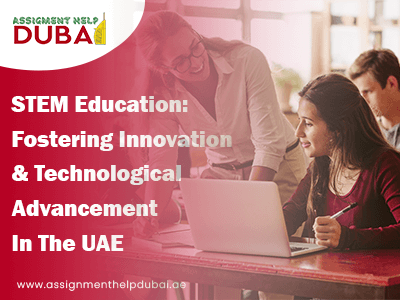-
Imperative:
Education is an essential element to ensure the strengthening of human capital. The educational system is very important for knowledge. Because the economy creates a space for inducing positive attitudes, Change is possible. STEM education, the Promotion of higher education in engineering, and some applied courses in engineering Applied science ensure the development of new technologies Desirable to achieve the national goals of the United Arab Emirates.
STEM education is the panacea for economic growth. It makes sense to consider several areas in current and future development. It offers several possibilities for the realization of the goals of the United Arab Emirates.
Human capital is essential to any innovation process. having people with the necessary skills to perform their jobs ensures that the need for innovation is met. STEM education produces a large number of graduates who fit their careers in global fields, both domestically and internationally. As the UAE struggles to become self-reliant, STEM graduates will help even more.
Contribute to the goals of the Federation. Creativity inspires people to discover and find solutions to federal challenges. UAE students taught using STEM project-based learning and assignments help have better 21st-century skills. These skills include cognitive, content, and participation skills that are necessary to achieve the national goals of the UAE.
This is in accordance with the definition of the Prime Minister of the United Arab Emirates, which he said is the desire of individuals, private institutions, and governments to achieve progress by generating innovative ideas and producing new products and services.
And work that positively affects the overall quality of life. It became clear that a knowledge-based economy must be scientifically and technologically driven, must rely on intellectual skills other than natural resources, and can only be achieved by relying on STEM education.
Science and technology are key elements of the STEM field and the main driver of the knowledge-based economy. Achieving national goals in the United Arab Emirates. This is in line with the UAE Vision 2021 to improve productivity and competitiveness. This governs with the help of investment in science, technology, and R&D and can ensure the prioritizing investment in STEM education.
Interest in new enterprises in the UAE is on the ascent, as per a report by the UAE Society of Specialists. Efforts should made to encourage young people to participate in STEM education. These opportunities come with demand. Abu Dhabi Economic Vision 2030, also creates a high demand for scientists, technicians, and engineers. It is making STEM education essential to achieving the UAE’s national goals.
-
Challenges:
A major challenge in STEM adoption is the need for resources and models that integrate work with schools and relevant curricula.) This means that all elements that support the successful integration of STEM into the UAE education system must be in place before recording any desired results, exist, and be structurally balanced.
One of the key factors in this is students’ interest in STEM subjects. Interest as a motivational component refers to the likelihood of engaging again with a particular object, event, or idea. Lack of interest in STEM fields This is a significant challenge for STEM education.
Most students just want to get better grades, and STEM subjects are considered complicated, so they are avoided. They prefer to take art courses or majors where they can be sure they will succeed and get high grades. Some students are influenced by peers who hold negative stereotypes about STEM as “unattractive.”
Moreover, some are influenced by the media. Some classrooms are unable to have the latest technological resources to enhance and facilitate learning in these STEM subjects. This makes learning less engaging and less fun.
-
Entrepreneurship Training & Cultural Barriers In The UAE:
The cultural aspects of collectivism and individualism are usually observed as the most meaningful aspects in examining the advantages of culture. UAE culture is collectivist, people live in strong cohesive communities and have tangible loyalties throughout their lives [33].
Research on entrepreneurship shows that individualistic cultures produce more entrepreneurs than collectivist cultures. The balance between collectivism and individualism helps create a more suitable environment for entrepreneurship production [34].
There is a growing interest in knowing how entrepreneurship can help organizations become more productive and efficient [35].
Entrepreneurship does not easily embassy Arab higher education students due to a lack of formal entrepreneurship education. The National Council’s Graduate Entrepreneurship Report found that graduates with formal entrepreneurship education tend to show more entrepreneurial intentions for novelty.
It helps to improve business processes and add value in today’s competitive global business environment. The UAE higher education system still needs to focus on many areas to achieve quality academics [37], but it is one of the best across the GCC.
-
Opportunities:
The STEM sector is now gaining attention in the UAE, improving the quality of teaching and learning and expanding the participation and capacity of educational institutions to address STEM subjects. There is now an increasing focus on the quality of education all across the UAE.
The UAE has many opportunities for STEM education, but preparing for future jobs and employees with technologies and AI strategies is at the top of the list. The World Economic Forum says 65 percent of children entering school today end up in jobs that don’t exist today.
The 2018 Future Jobs report states that 75 million jobs can lost by 2022. New technologies could create 133 million new jobs for people experts in machines and data. Experts claim that 12 disruptive technologies will change the world in the era of the fourth industrial revolution.
These include renewable energy, 3D printing, energy storage, genomics, oil and gas exploration, Internet of Things (IoT), cloud, robotics, self-driving cars, and more.

